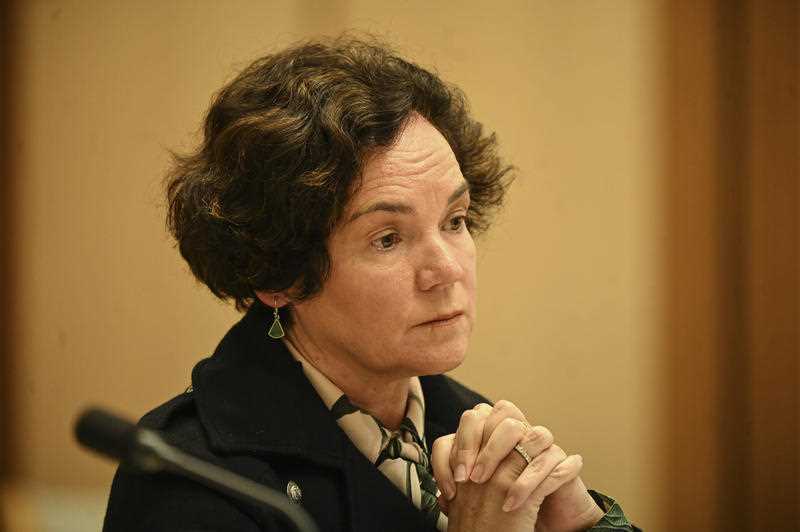Senior public servants will front the robodebt royal commission after damning evidence revealed budget savings were prioritised over legality.
Human Services department official Mark Withnell will give evidence on Friday, a day after a Social Services figure said he was frustrated when told the scheme’s “income averaging” debt calculation practice wasn’t lawful.
Social Services’ Andrew Whitecross said on Thursday Mr Withnell seemed “particularly unhappy” a $1.2 billion saving might be threatened if the scheme couldn’t happen.
Of the saving, Mr Whitecross added: “It was a sense … this was a number that had come out of a methodology, but the number itself was a goal of the process.”
Former Human Services secretary Kathryn Campbell is also scheduled to appear for the second time this week.
On Wednesday, she told the commission she knew law changes were needed in 2015 to use an average income instead of actual income for debt calculation, but said Social Services was in charge of the matter rather than her own department.
Social Services representatives told the commission on Thursday it “couldn’t be clearer” that calculating welfare debts based on an average income would require law changes.
Ms Campbell also told the commission legal advice from the Social Services department said income averaging could be used as a “last resort”, although commissioner Catherine Holmes took issue with that position.
Ms Holmes said it wasn’t accurate to say it was being used in that manner when recipients did not respond with their payslips, saying the department could have contacted their employers before taking that step.
The scheme, which went from 2015 until 2020, wrongly recovered more than $750 million from 381,000 people, with a number of victims having taken their own lives while being pursued for the false debts.
The royal commission is investigating how the scheme went ahead despite government departments knowing the debt calculation method was unlawful.
By Alex Mitchell in Canberra



